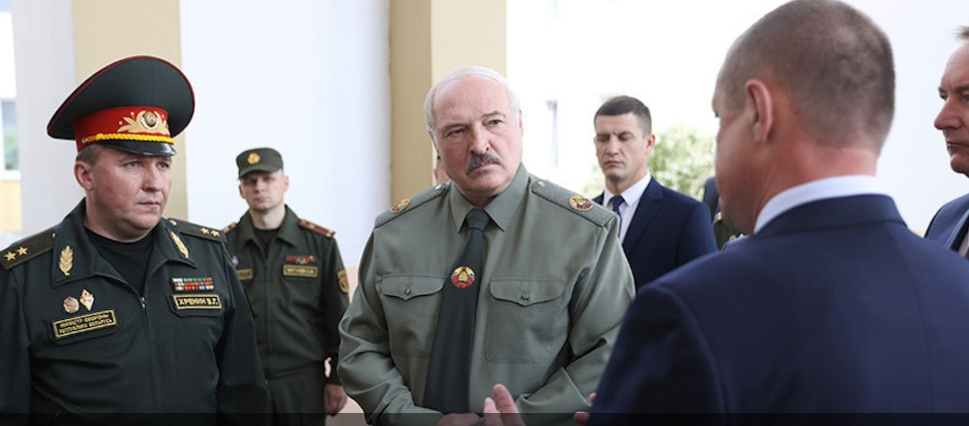Lukashenka weakens the position of Haloŭčanka’s government, as elections are guaranteed by the security forces
 The situation got worse
The situation got worse

The head of state criticizes the government, thereby weakening the ratings and position of Prime Minister Haloŭčanka within the ruling class. The Belarusian leadership expects to continue injecting substantial funds into the public sector to support economic growth, which includes attracting Russian investments into the economy. The ruling class is strengthening the cooperation between election organizers and the security forces to insulate the elections from potential pressure from protesting audiences, isolate them from society, and create favorable conditions for summarizing the results.
The ruling class is concerned about the election campaign and fears another mobilization of society for protests. Chairman of the Central Election Committee of Belarus, Karpenka, met with the personnel of the internal troops’ command.
Despite the 3.5% GDP growth, the head of state criticizes Haloŭčanka’s government to balance the Prime Minister’s political influence and ratings.
Lukashenka intends to construct a second nuclear power plant in Belarus, despite occasional downtime at the existing plant, delays in fully commissioning the second unit of the existing nuclear power plant, electricity export issues, and increasing credit dependence on Russia.
The government continues to seek additional sources to fill the budget and to adjust economic conditions in favor of short-term financial advantages.
In response to the sanctions policies of Western capitals, the ruling class worsens the operating conditions for foreign companies. Lukashenka has introduced a special fee for foreign companies from non-member countries.
The government does not appear prepared to take measures to restore the country’s investment attractiveness in the near and medium term and is more likely considering a long-term confrontation with Western capitals and their sanctions approach.
The regime’s security forces maintain high-level repression to discourage supporters of change. Despite the extensive cleansing of the political landscape and civil society, the ruling class continues politically motivated persecution due to a lack of confidence in quelling the protest movement. In addition to criminal penalties and administrative arrests, the security forces seize the property and finances of opponents for the benefit of the state.
The labor shortage continues to grow. However, the ruling class prioritizes purges of dissidents within the public sector and politically motivated persecution of private businesses.
The government hopes to partially address the personnel problem by reducing the tax burden on young professionals. Budget losses are expected to be compensated for by increasing income taxes for highly-paid employees.
The authorities struggle to garner public support for implementing pension reform due to low trust in public finance policies, including periodic devaluations and high inflationary expectations. Over the year, 19,000 citizens joined the state pension accumulation system under the “3+3” scheme.
Thus, the ruling class anticipates a gradual increase in the redistribution of resources from private businesses to benefit state-owned companies and employees.
Subscribe to our newsletter




Situation in Belarus
Constitutional referendum: main consequences


 Video
Video
How to count the political prisoners: are the new criteria needed?


 Video
Video
Paternalism In Decline, Belarusian Euroscepticism, And The Influence Of Russia


 Video
Video












